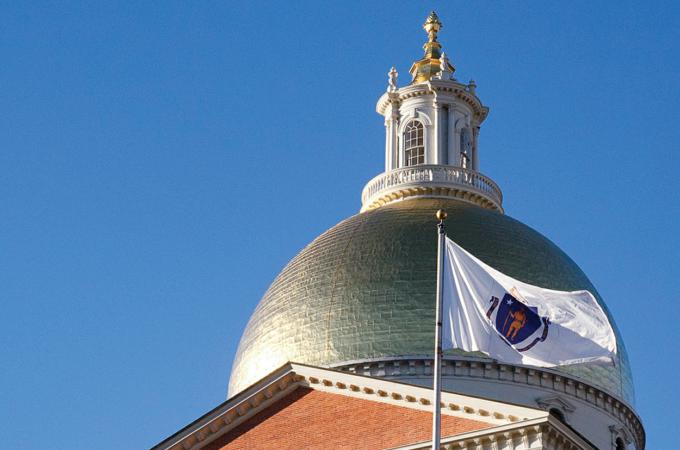Massachusetts bishops criticize state legislation to expand abortion
BOSTON -- The bishops of Massachusetts have expressed "disappointment" that a budget amendment expanding abortion is moving forward.
A state budget amendment containing several provisions of the controversial ROE Act made its way to Gov. Charlie Baker's desk last week.
On Dec. 11, the governor sent the amendment back to the Legislature with recommended changes. Those included keeping the age of consent for an abortion at 18 years old rather than lowering it to 16. The original ROE Act had sought to eliminate the age of consent completely so that minors of any age could obtain abortions without the permission of a parent, guardian, or judge.
The governor also recommended stronger language regarding standards for obtaining an abortion after 24 weeks gestation. While the state's current law permits this only if the continuation of pregnancy is thought to cause "a substantial risk" to the mother's health, the new law would allow it if a doctor deems it necessary to "preserve" her physical or mental health.
In addition, Gov. Baker suggested a provision that was not in the amendment: the institution of penalties, such as fines or loss of license, for abortion providers who violate the provisions of the law.
On Dec. 14, Speaker of the House Robert Deleo said the Legislature would reject those changes.
"On Wednesday, the House will act to overturn the administration's amendment, which sought to erode the reproductive health protections the Legislature last month voted to put in place for Massachusetts," the Speaker said in a statement.
"The House will vote in favor of safeguarding women's reproductive rights in the Commonwealth at a time when they are under threat due to the new composition of the United States Supreme Court," he added.
As of press time, the vote had not yet taken place.
If the Legislature does reject the governor's changes, it can either return to the previous language or put in new language. The bill would then go to the governor to either be vetoed or signed, at which point he would no longer have the authority to propose additional amendments. If he vetoes it, it will return to the Legislature, which can override his veto by a two-thirds majority vote in both houses.
In a statement released Dec. 12, Cardinal Seán P. O'Malley, Worcester Bishop Robert J. McManus, and Fall River Bishop Edgar M. da Cunha said they are "deeply disappointed at the recent legislative action that, if enacted, would expand access to abortion in Massachusetts."
"The direct, intentional taking of a human life, regardless of the purpose or circumstances, is not morally acceptable and is particularly harmful to the common good," the bishops said.
The bishops said it was "most troubling" that "under these provisions, women will have greater access to late-term abortions throughout the term of their pregnancy with no specific statutory requirement that a physician utilize lifesaving medical equipment if a child is born alive."
They added that they "remain committed to life and pray for the end to all abortions."
"Our society is best served by the protection of every person's life, including those waiting to be born and those approaching natural death. We pledge ourselves to work to bring about a more just society that offers humane and effective alternatives for women facing a crisis or difficult pregnancy," the bishops said.



















